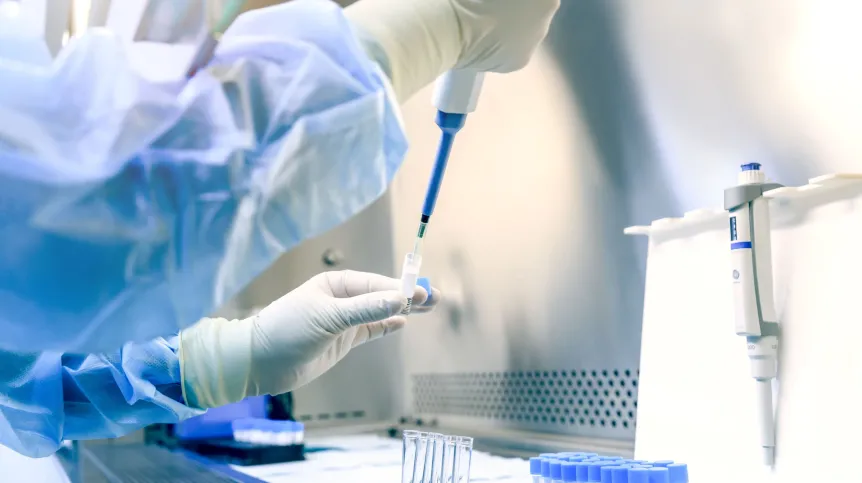
Researchers have found that one of the genetic variants in chromosome 3 more than doubles the risk of catching severe COVID-19.
As part of a project called POLCOVID-Genomika, scientists from across Poland led by the Medical University of Bialystok and the biotech company IMAGENE.ME, carried out research on 1,500 patients with various degrees of COVID-19 severity, from mild to ventilated or even fatal.
In all cases, the entire genome was carefully analysed.
Professor Marcin Moniuszko, who leads the project with Dr. Mirosław Kwaśniewski from the Medical University of Bialystok and IMAGENE.ME said: “[The research] shows that one of the genetic variants in chromosome 3 more than doubles the risk of severe COVID-19. And this regardless of other characteristics, such as age, obesity or comorbidities, such as diabetes.”
The frequency of the genetic variant in Poland is 14.09 percent, slightly higher than in the rest of European (9.18 percent).
Moniuszko said: “This is an important study because it was performed on the Polish population, on a large group of patients, and it was very precisely described clinically. We spent many months carefully analysing the data and the entire genomes of these patients, over 20,000 genes in each patient.
“In addition to assessing the risk of severe COVID-19, in the next stage of the research we want to analyse what affects the development of long-COVID-19, the long-term effects of this disease.
“For example, we investigate the possible complications in the lungs and heart muscle. We want to explain why some COVID-19 patients have a prolonged disease and take much longer to recover.”
He added that the specialists want to determine what genetic variants affect this and investigate which clinical factors, such as general health, body weight and comorbidities, favour long-term COVID-19.
The researchers have now developed a mathematical model to estimate the risk of catching severe COVID-19 which can be converted into a risk calculator to be used throughout Poland.
The POLCOVID-Genomics research was conducted in cooperation with the Institute of Tuberculosis and Lung Diseases in Warsaw and 15 clinical units in Poland.
In addition, last week Nature published the results of international research showing which genetic factors could affect the severe and life-threatening course of COVID-19.
The COVID-19 Host Genomics Initiative project highlighted three variants of the genes FOXP4, DPP9 and TYK2 that affect the immune system's response to SARS-CoV-2 infection.
The important role of smoking and excessive body weight was also confirmed.
Co-author of the report, Dr. Karolina Chwiałkowska from the Center for Bioinformatics and Data Analysis of the Medical University of Bialystok, said that thanks to the data it will be possible to select people who are at high risk of severe COVID-19.
She said: “This could have a positive impact on the way public health resources are managed, as the initial risk could be determined for each individual at the very beginning, and even long before they become ill.”
(PAP)
Author: Zbigniew Wojtasiński
zbw/ agt/ kap/
tr. RL













